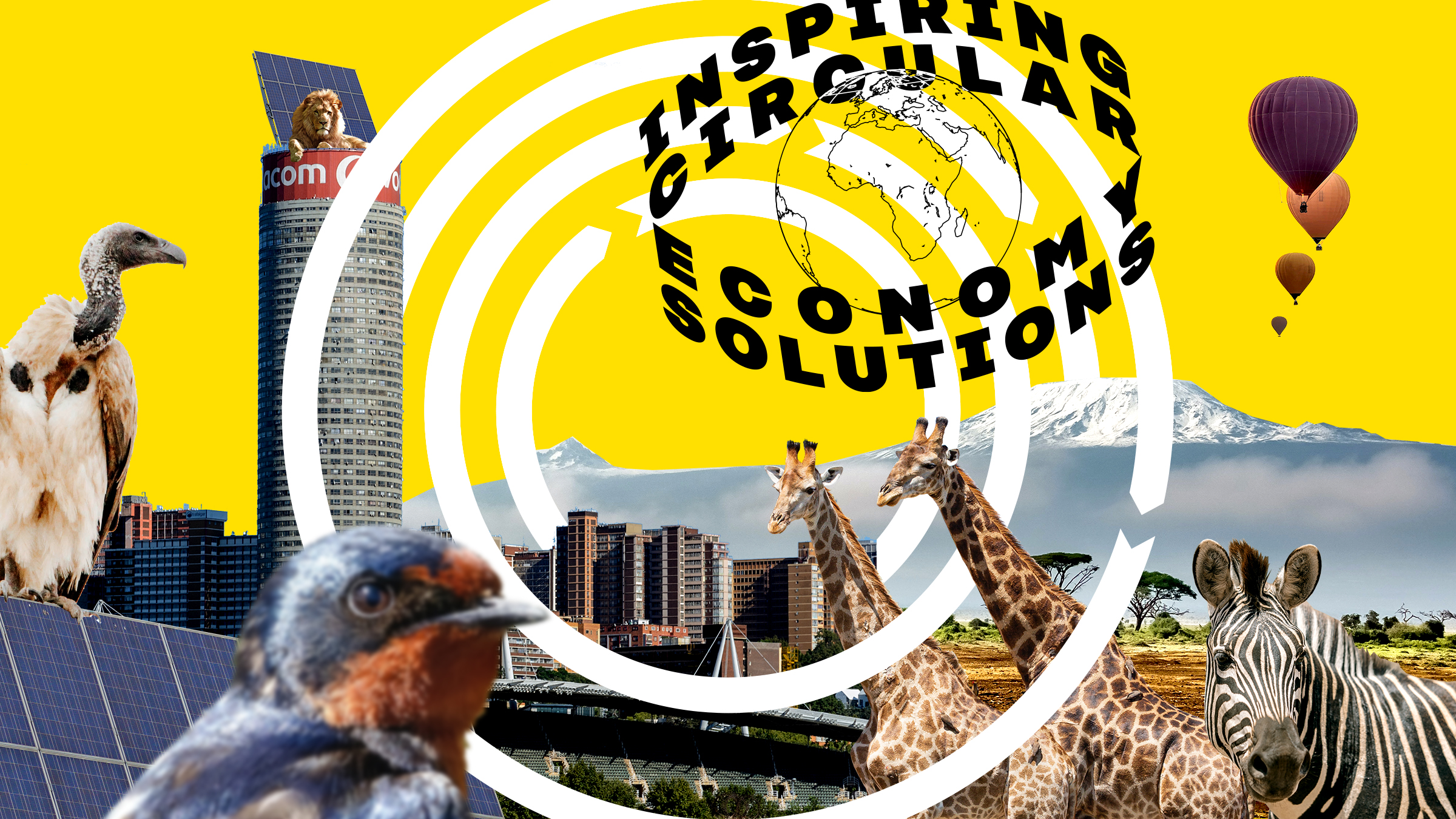Africa has the ability to power the world into a circular future for three reasons: youth, tradition and development.
Young people are the future, and Africa has the youngest population in the world. Traditionally, Africa has been a major source of the world’s raw materials and they have the ability to reform material supply chains. Finally, much of Africa is still developing. They can leapfrog the most destructive parts of development to a more sustainable level, such as skipping coal power and instead building solar plants in their electrification journey.
These are just a few of the reasons why this year the World Circular Economy Forum 2022 comes to Africa. WCEF2022 is being hosted by Rwanda with local events across the continent.
Here we have gathered some of the most exciting circular solutions from a list of more than 500 companies compiled by Footprints Africa, a non-profit organisation supporting the sustainable development of small- and medium-sized enterprises. We tried to pick a diverse group with different business models and industries.
Although many of these solutions are local in focus, they can inspire people all over the world in their own circular transition. Just like our ancient ancestors emerged from Africa to populate the world, circular solutions could come from the continent to help the entire planet.
Creating construction blocks from plastic waste
Based in Tanzania, Arena Recycling creates construction blocks from sand and discarded plastic. They recycle about 35 tonnes of plastic every month in their five plants in Dar es Salaam.
Providing communal refrigerated buildings powered by the sun
Cold Hubs have built over 50 solar-powered refrigerated buildings for farmers and retailers across Nigeria, saving over 50,000 kilos of food. Refrigeration is an easy way to reduce food waste, lowering carbon emissions and improving income in rural areas.
Turning organic household waste into soil compost
South Africa’s Compost Kitchen saves household organic waste from ending up in landfills. They collect old food and other organic material from homes, treat it with earthworms and provide the resulting vermicompost to people for their gardens.
Turning construction waste into new low-cost buildings
DigiYard collects unused material from construction sites in South Africa for new homes in low-income communities. Their solution is a win for everyone: construction companies have their “waste” taken care of, the material stays out of landfills and people get new homes.
Using agricultural waste to feed insects, which in turn feed chickens
Ghana’s Neat Eco-Feeds has created a clever circular agricultural solution. They use agricultural sidestreams, such as meat byproducts discarded by abattoirs, to feed black soldier fly larvae which go to feed chickens. This turns the sidestreams into a valuable commodity and provides cheap and nutritious chicken feed for farmers struggling with increasing prices.
Promoting regenerative agriculture, cash crops, carbon credits and blockchain for farmers
OKO Forests saw many farmers in Ghana had no incentive to practice regenerative agriculture because they lacked documentation to prove land ownership. Blockchain solutions could prove land ownership for farmers, while income could be improved by cash crops and planting trees for carbon credits.
Recycling textile waste into new products
Rewoven collects and sorts textile waste in South Africa. Fashion is notorious for how much resources it consumes, so finding new uses for old clothes can provide jobs while using fewer natural resources such as water to grow cotton. Since 2020, Rewoven has saved 460 tonnes of old textiles from landfills and used it for products such as pet beds, insulation and pillow filling.
Creating organic fertiliser and biochar from agricultural bioproducts
Ghana’s Sabon Sake takes sidestreams from sugarcane and rice production and turns these into organic fertiliser and biochar. This turns agriculture waste into an important commodity farmers can use instead of expensive fertilisers.
Producing organic fertiliser locally in villages
SafiOrganics knew local problems could be solved locally. They have decentralised fertiliser production in Kenya, collecting crop byproducts, treating it and using it, all in the same village. They create organic fertiliser as well as soil amendments, which are materials to improve the physical properties of soil like water retention.
Matching stores with excess food with consumers and charities
Tekeya has developed an online marketplace in Egypt to match those with extra food to those who need it. Consumers use the app to find restaurants and grocery stores near them with cheap, surplus food. If no buyers are found, the food can go to charities. This makes sure people don’t go hungry and food doesn’t go to waste.
Properly recycling e-waste
WEEE Centre makes sure e-waste recycling is done correctly in Kenya. Many electronic devices end up in landfills or are recycled in unsafe conditions over open fires. WEEE Centre has built a network of companies, NGOs and municipalities to recycle e-waste safely and properly.
An easier method to make drinking water safe
Vepox Filter creates water filters from the seeds of local trees in Uganda. This reduces the need to boil water for safety, which requires wood and contributes to deforestation. The filters can be recharged and reused.
Want to learn more about circular economy solutions in Africa? This year’s World Circular Economy Forum will take place in Rwanda on 6–8 December. Check out the programme and register for online participation.


